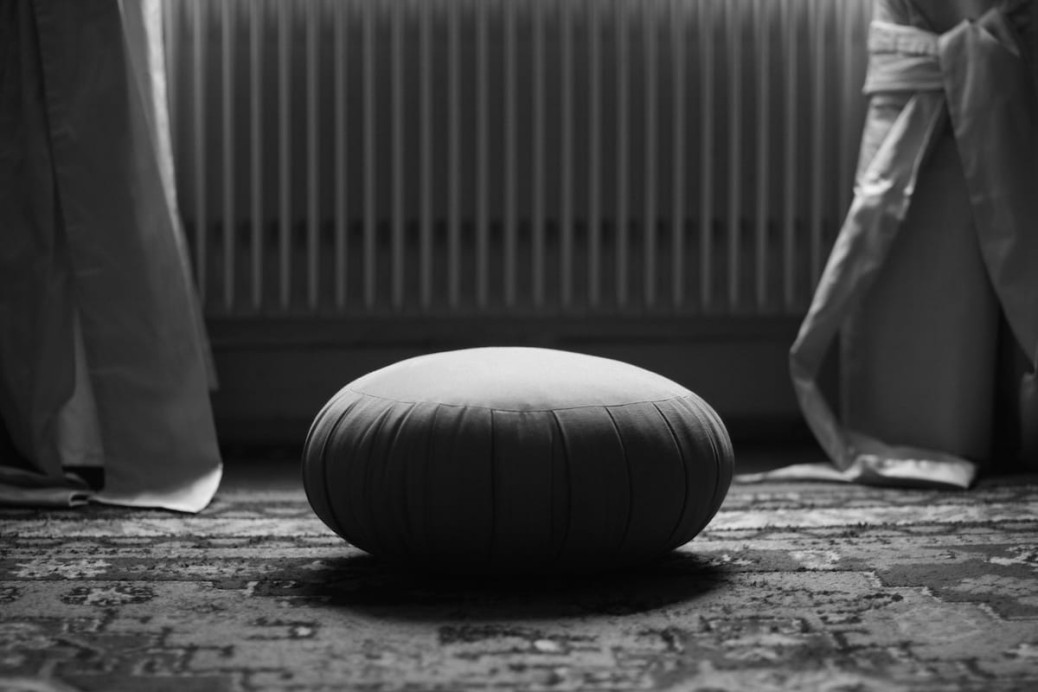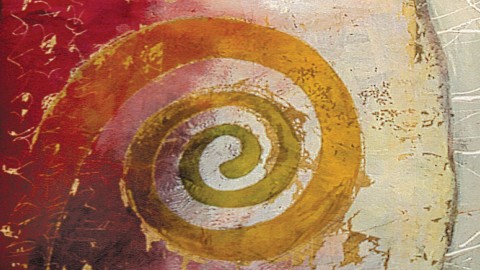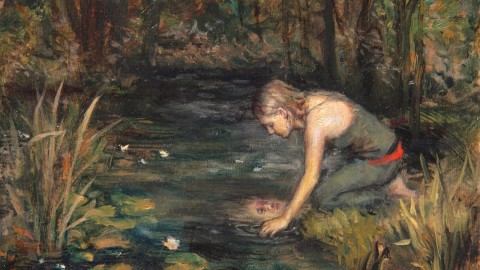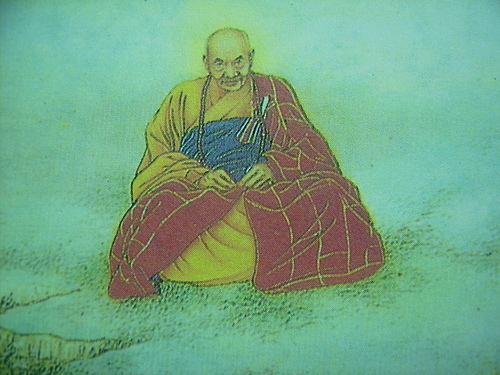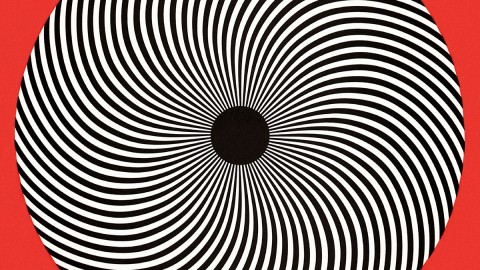Joshu once asked Nansen, “What is the Way?” Nansen answered, “Ordinary mind is the Way.”
“Then should we direct ourselves toward it or not?” asked Joshu.
“If you direct yourself toward it, you go away from it,” answered Nansen.
Joshu continued, “If we do not try, how can we know that it is the Way?”
Nansen replied, “The Way does not belong to knowing or not knowing. Knowing is an illusion, not-knowing is blankness. If you really attain the Way of no-doubt, it is like the great void, so vast and boundless. How, then, can there be right and wrong in Tao?”
At these words, Joshu was suddenly enlightened.
Effortlessness
Zen says the ordinary mind is the enlightened mind. You don’t go anywhere; the ordinary world is paradise. Here and now, everything is there. You need not go anywhere.
A man whose mind is open, the wife disappears. Not that he goes, escapes from the wife; simply the wife disappears, and a beautiful being is there. When there is no wife, a beautiful being is there. When you make a being a wife, a husband, ugliness enters. Then there is a friend, a beautiful loving friend – because expectations bring enmity. It is your mind, a closed mind, which creates the problems, not the wife.
For the first time you become aware of the beauty of the world; everything is young and fresh and alive, and godliness is here! If you think your godliness is somewhere else, you are still listening to the mind because that is the language of the mind: “Somewhere else, somewhere else. Never here” – and it is always here.
Meditation reveals to you the here and now. And then the ordinary mind becomes the most extraordinary, and the ordinary life becomes the supreme, the ultimate. The only difference is of a closed or open mind.
When thoughts are there the mind is closed. When thoughts are not there, the clouds are not there, and the mind is open. And when the mind is open the old pail has fallen, the water has flowed out, the reflection disappears – no water, no moon.
This story conveys one message of Zen and that is, Be Ordinary. All Zen masters also are ordinary people and teach ordinariness. It is the ego which is always hankering to be extraordinary. The ego is always discontented with being ordinary; it wants to be extraordinary at any cost. It hurts to be ordinary. But once we learn to be happy being ordinary, we accept ourselves as we are, it stops hurting, we experience a certain joy in just being ordinary.
Nansen answered Joshu, to live an ordinary life. He showed that life is here and unless you are here without any doubts then only you will be able to see your emptiness or godliness. With this hint Joshu was suddenly enlightened.
Once you have accepted the ordinariness, in your very ordinariness arises an extraordinariness. Your ordinariness becomes luminous, radiant. Then each moment is a gift, and each moment brings its own joy, its own peace, its own beatitude.
Life is not a thing, it is a process. And so infinite and so vast – how can you seek it? It is impossible.
You can live, you can drop into this infinite ocean of godliness. And that door opens right now. There is no need to wait.
The whole Zen attitude is to bring to your notice the fact that there is no effort to be made. The Zen attitude is that of effortlessness.
Learning from the story Ordinary Mind: Effortlessness
Experience Learning
That is where Zen differs from Yoga. Yoga is effort – Zen is effortlessness.
And of course effort can lead somewhere, but it cannot lead to the ultimate. Effort can give you a better ego, more polished, more crystallized. But it cannot give you nirvana, it cannot give you godliness. That is beyond effort. When all efforts cease, in that silence, in this beautiful emptiness, in that void, whatsoever is found is godliness.
Then what is to be done? The question naturally arises – then what to do? Understanding, more awareness, more witnessing. Watch yourself moving, living, being. Try to understand each moment that passes by you. Become a witness.
Remember, witnessing does not mean judgment. You are not to judge that this is good and this is bad. The moment you judge, you lose the witness. If you say this is bad, you are already identified. If you say this is good, you have already slipped out of witnessing – you have become a judge.
A witness is a simple witness. Just watch as you watch the traffic on the road, or someday you lie down on the ground and you watch the clouds in the sky. You don’t say this is good, that is bad; you simply don’t make any judgments. You watch. You are unconcerned with what is good, what is bad. You are not trying to be moral. You are not trying any concepts – a pure witnessing. Out of that, more and more understanding arises and by and by you start feeling that the ordinary life is the only life; there is no other life. To be ordinary is the only way to be religious. All other extraordinary things are ego trips.
Just to be ordinary is the most extraordinary thing in the world because everybody wants to be extraordinary.
Nobody wants to be ordinary. To be ordinary is the only extraordinary thing. Very rarely does somebody relax and becomes ordinary. If you ask Zen masters, ‘What do you do?’ they will say, ‘We fetch wood from the forest, we carry water from the well. We eat when we feel hungry, we drink when we feel thirsty, we go to sleep when we feel tired. This is all.’
It does not look very appealing – fetching wood, carrying water, sleeping, sitting, eating. You will say, ‘These are ordinary things. Everybody is doing them.’ These are not ordinary things, and nobody is doing them. When you are fetching wood, you are condemning it – you would like to be the president of some country. You don’t want to be a woodcutter. You go on condemning the present for some imaginary future.
Carrying water from the well, you feel you are wasting your life. You are angry. You were not made for such ordinary things.
You had come with a great destiny – to lead the whole world toward a paradise, some utopia. These are all ego trips. These are all ill states of consciousness.
Tags: Be Ordinary Effortless Discipline Effortless Effort Effortlessness Free Man Hard Work
